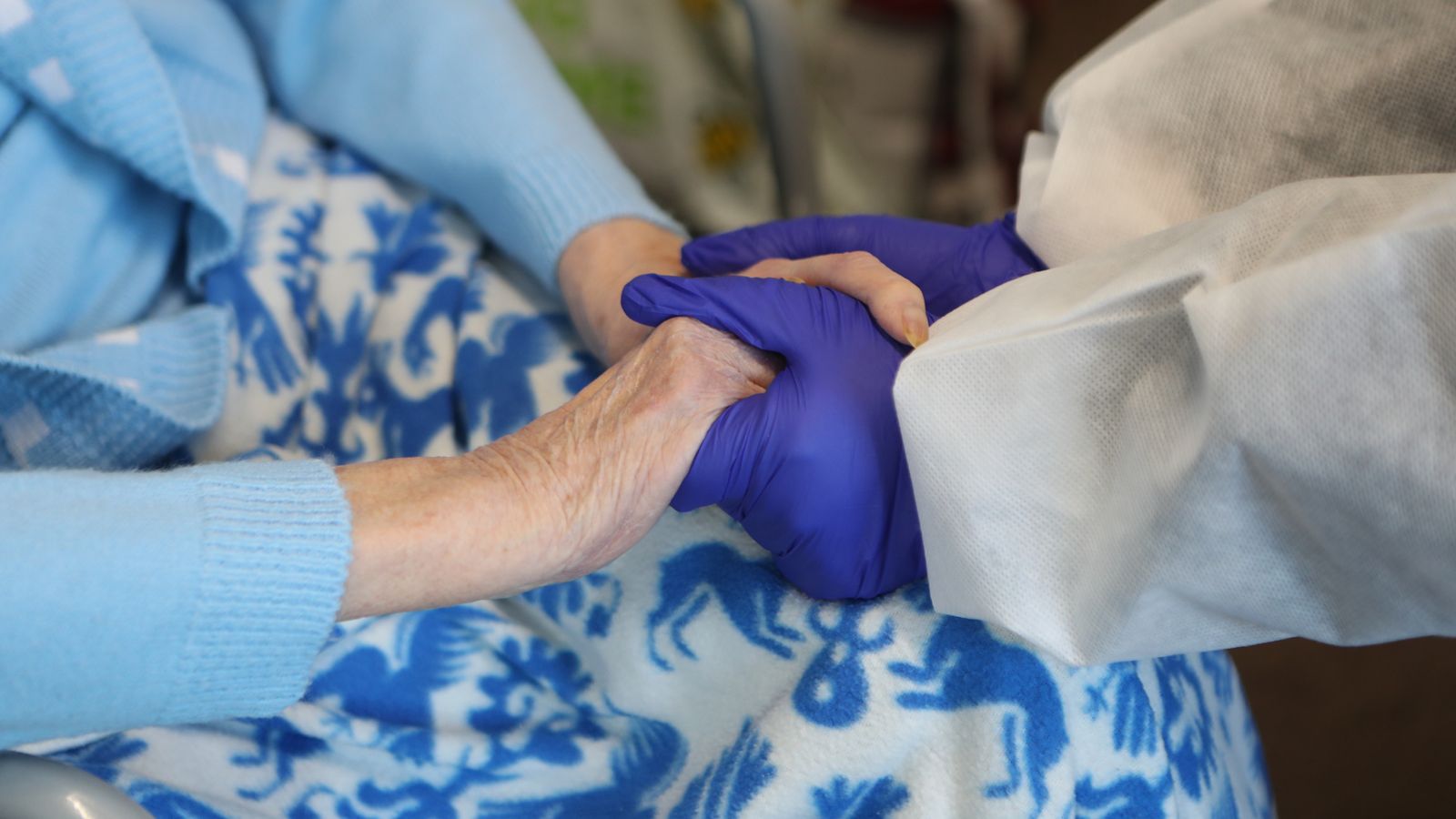Care home residents are dying alone and being “neglected” amid “dangerously low” staffing levels, new research suggests.
People in residential care are being denied a dignified end to their lives as there is a shortage of staff available to sit with them as they die, a survey by Unison has found.
The union reports that 31% of care workers said staffing levels are dangerously low, getting worse and negatively affecting the quality of care given to residents. Almost all (97%) said their employer is experiencing staff shortages.
Please use Chrome browser for a more accessible video player
Respondents to the survey said people are not being washed regularly, some are not getting dressed until the afternoon and others are being put to bed early so staff can attend other residents.
As a result, carers have been left feeling “exhausted, angry and upset”.
It comes as 8% of care workers who are unvaccinated must leave their jobs, due to the introduction of mandatory jabs.
The problem could get worse with 67% considering leaving the sector, a move Unison said would be “disastrous but inevitable”.
Boris Johnson risks further anger over social care reforms as he appears to step back from manifesto commitment
Care costs cap: Ex-health secretary Jeremy Hunt abstained from social care vote as ‘not as good as I hoped for’
Care costs cap: MPs back controversial change to social care reforms in England
The union surveyed 1,637 employees in England, Wales and Northern Ireland between 13 October and 4 November who work in care homes, or help people at home or in supported living.
Staff said they are “depressingly rushed” with “unsafe” and declining staffing levels on both day and night shifts.
One respondent said: “The dying aren’t dying with dignity because there’s not enough staff to sit with people in their final hours.
“Residents are being neglected, not having baths, meals are late, and staff are exhausted.”
Another said: “The level of care is declining as there aren’t enough carers to do the job. People are being left in wet, dirty beds.”
Suzanne, a residential care worker, described staff levels as “dangerously low” at times, with care “well below acceptable standards”.
The 40-year-old added: “I’ve had to leave residents in tears because I had to care for someone else who also needed me.”
Unison general secretary Christina McAnea said a pay rise announced by the government would bring some “early festive cheer” to care workers and persuade many on the verge of quitting to stay.
She said: “Care workers are leaving in their droves – burnt out from the pandemic, exhausted from covering under-staffed shifts, and fed up with low wages.
“This is nothing short of a nightmare for families worried about the care of their loved ones, overworked employees struggling to cope and employers concerned they won’t have the staff to stay open.
“The care sector is desperately short of workers and can’t wait months for the government to come up with a solution.”
Follow the Daily podcast on Apple Podcasts, Google Podcasts, Spotify, Spreaker
Earlier this month, the government launched a recruitment campaign in a bid to fill more than 100,000 social care vacancies, with a £162.5 million workforce fund.
A Department of Health and Social Care spokesperson said: “Everyone deserves high quality and compassionate care, and we are grateful for the dedication and tireless work of social care staff throughout the pandemic.”
They said as well as the £162.5 million fund, the government would invest at least £500 million to develop and support the care workforce as part of its £5.4 billion to reform social care.






















